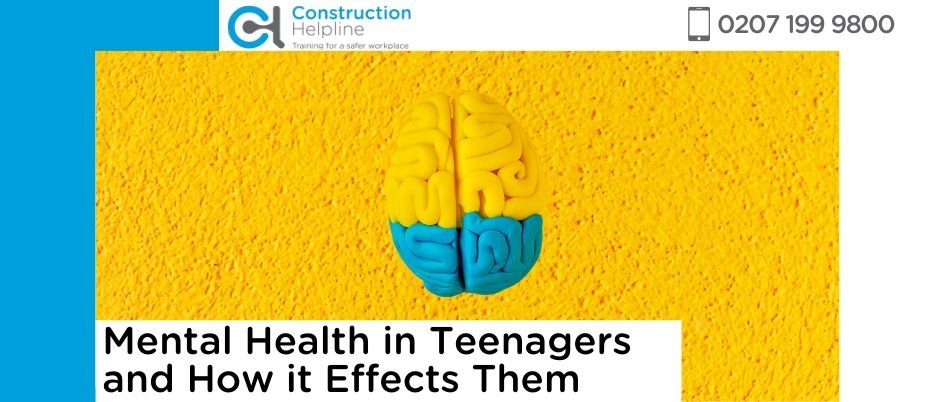Mental Health in Teenagers and how it impacts them mentally & socially
Mental health is something everyone deals with at some point in their life, making it is so important to know the best course of action on how to combat it when cases arise. Whether you wish to start a career in construction or not, understanding the impact mental health has on young people in the UK is pivotal for the wellbeing of the next generation of people living in our community.
The Facts
Amongst teenagers and young people, mental health has alarmingly become more of a topic of concern:
- In 2019, amongst people aged from 5 to 34, suicide was the leading cause of death.
- 1 in 6 children aged 5-16 identified as having a mental health problem in July 2020, which is an increase compared to 2017 where 1 in 9 children interpreted as having mental health issues.
- It is no surprise that, even recent occurrences like the coronavirus pandemic, have had an effect on mental health, with a worrying 80% of young people agreed that the pandemic made their mental health feel ‘worse’.
- Only 1 in 3 young people with a diagnosable mental health condition get access to NHS care and treatment.
The harsh reality is that the majority of young people feel they can’t be heard or struggle with getting help, contributing to 2 of the major disorders associated with mental illness – depression and social anxiety.
Depression & Social Anxiety
Depression is a state of constant low mood that can last for an extended period of time, that can range from weeks to months. Depression in young people can be seen in the form of losing interest in activities they’ll usually enjoy, having problems at school/college and low self-esteem.
Social anxiety is a disorder that is the fear of social situations, as well as the fear of being judged and watched by others. Social anxiety is more than just shyness and can greatly affect many aspects of daily life, including work, school and other day-to-day activities. This disorder usually starts in teenage years, where a social phobia can arise from several stimuli:
- Feeling lonely or disappointed over missed opportunities of friendship and fun
- Not getting the most out of school / college
- Missing chances to share their talents / new skills
It is important to deal with these conditions as early as possible as the longer they persist, the more likely they’ll continue to disrupt young people’s lives long-term.
What can be done about it? – When to get help?
Thankfully, there are now many methods out there on how mental health in young people can be managed and dealt with:
Spreading awareness & encouraging social support
Raising awareness and encouraging conversation about mental health can do more
than you think. Social isolation is a major contribution to mental health
issues. Therefore, by staying connected to others and promoting positive discussions
can help young people reconnect back to society.
Make physical health a priority
Physical and mental health are strongly connected. With conditions such as depression
being linked to inactivity, lack of sleep and spending hours on devices,
establishing healthy habits and regular exercise can drastically improve mood. For
example, regular weekly exercise, a nutritious diet and 7-9 hours of sleep a
night can provide a ‘feeling good’ sensation due to the release of endorphins that
can help promote self-esteem.
Support from Charities
Organisations like Young Minds UK
are charities that specifically deal with mental health amongst young people. Young
Minds have the ultimate goal of a world where no young person feels alone with
their mental health and seek to provide advice and support for all young people
who need help.
Summary
Mental health awareness has greatly improved over the past few years. With more organisations creating a sense of openness to allow discussion, it makes it easier for those who need help to be comfortable in asking for it. We at Construction Helpline champion these efforts and openly provide support to all those suffering from mental health issues.


